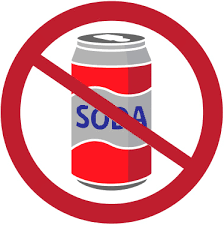On Wednesday of this past week, I had lunch with two dear friends, Chris Jenkins, and Tim Chase. As we sat down, I mentioned that my doctor said I need to get my weight down to 170 lbs. Excessive weight is a battle with which I have struggled since the early 2000s. Several years ago, my weight climbed to 231. I started this journey to 170 lbs. in the middle of August when I weighed 211. I have broken that goal down into small steps: I want to weigh 190.0 or less by October 31st, 2018. As Chris, Tim, and I discussed the issue, Chris said: “Your biggest problem is that big cup right there.” I had a very large styrofoam cup of diet mountain dew. He reminded me that he had lost 10 lbs. in one month without changing anything except he stopped drinking all sodas. Chris has earned my trust to the point that I take what he has to say very seriously. Therefore, I wanted to do some research and explore the reasons behind his suggestion.
Diet Mountain Dew, all other diet soft drinks, and many of our other processed foods use artificial sweeteners. I picked up a can of Diet Mountain Dew, and I noticed that the calories, sugars, and carbs are all zero. It does have 50 mg of sodium, but considering the American Heart Association recommends 1500 mg or less, I always thought that was ok. However, the artificial sweeteners may fool your taste buds, but they do not fool the rest of your body.
The Research
The information about the safety of artificial sweeteners available is very conflicting. People on both sides of the issue have very strong feelings. Of course, people with addictions can be very animated when they defend their use of a substance in harmful doses. I chose to look at research that is supported or produced by institutions whose name is more valuable than any endorsement. The American Diabetic Association published research by Jennifer A. Nettleton, Ph.D et al. which indicated that proportional daily consumption of diet sodas increased an individual’s greater relative risk of metabolic syndrome (increased blood pressure, high blood sugar, excess body fat around the waistline, and abnormal cholesterol or triglyceride levels) by 36%, and increased the greater relative risk of type 2 diabetes by 67%. Wait! What? Yes! Artificial sweeteners increase the greater relative risk of type 2 diabetes, and I thought I changed from sugar soda to diet soda to avoid exacerbating my diabetes.
Secondly, Dr. Mark Hyman, who is the Medical Director for Cleveland Clinic’s Center for Functional Medicine, quoted research which indicated that artificial sweeteners slow metabolism, increase abdominal girth, and increase cravings, particularly for sugars and carbs. In other words, artificial sweeteners slow our body’s rate of processing calories, increase belly fat and cause us to crave the stuff that increases our weight.
Third, the US National Library of Medicine National Institute of Health published research that 94% of rats preferred water sweetened with saccharin (an artificial sweetener) to intravenous cocaine! Artificial sweeteners are much more powerful in the amount of sweet taste that they produce when compared to regular sugar. So, if an animal prefers that to cocaine, this stuff is addictive. Taken with the info above, the addiction leads to obesity, diabetes, and other health problems. HMM, Isn’t that what I have?
My Conclusion
I am convinced. I am going to remove as many artificial sweeteners from my diet as I can. This means that I will eliminate all soda (regular and diet) from my life. It will not be easy, but it is something that I need to do for my own health. I want to thank Chris for being willing to say what I needed to hear even when I didn’t like it.
What about you? Are there consistent behaviors in your life that are not healthy? Do you want or need to make some changes?


